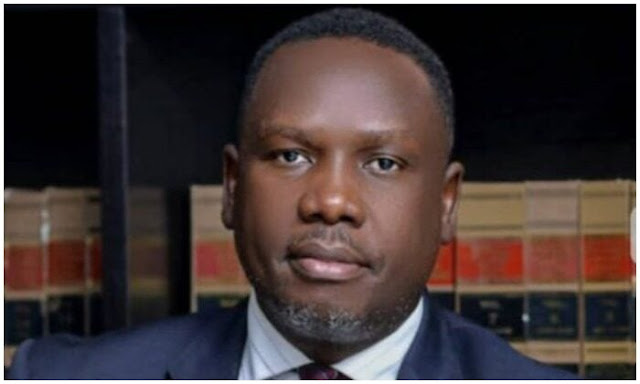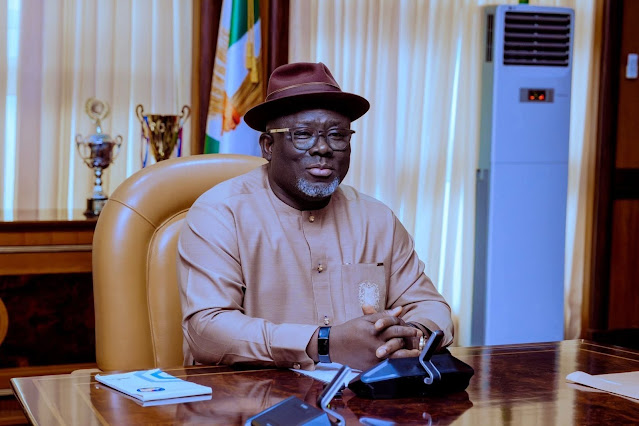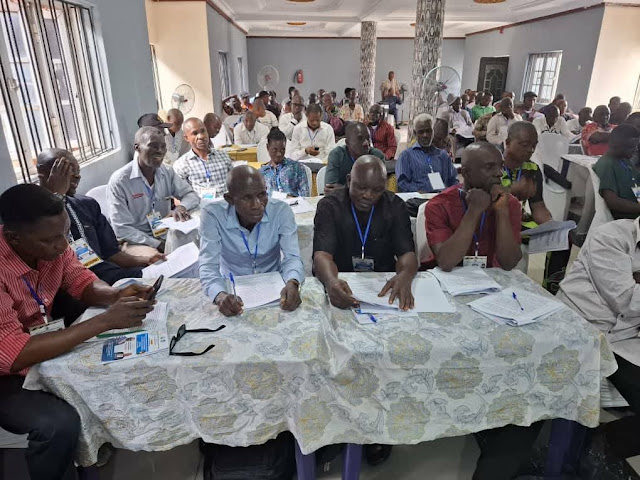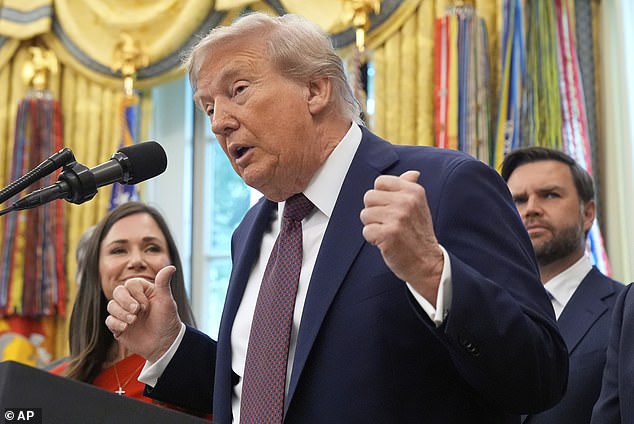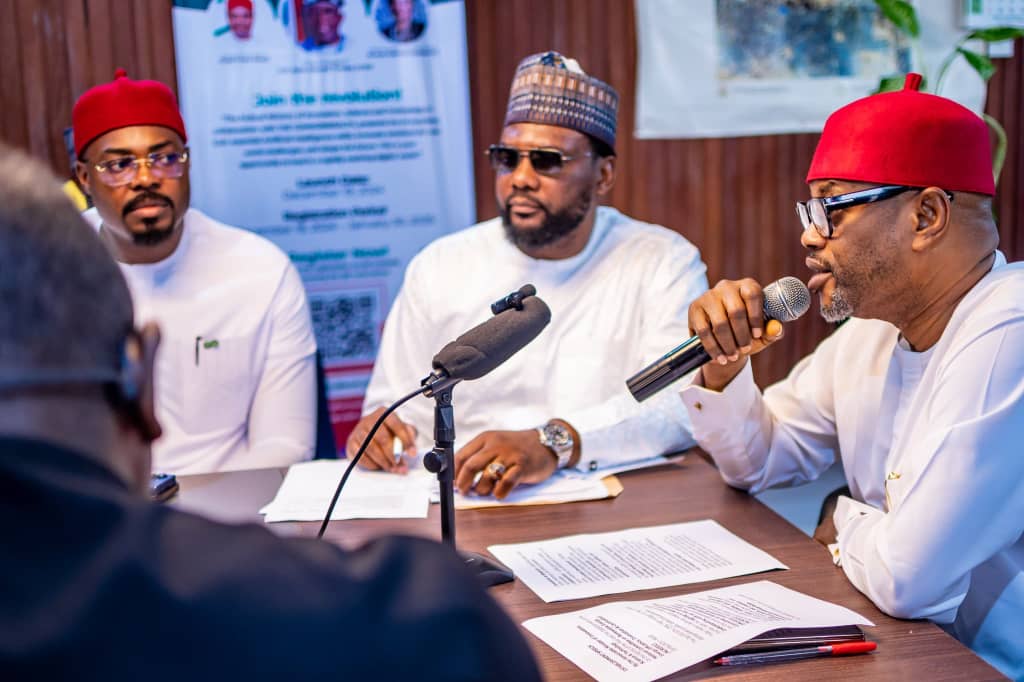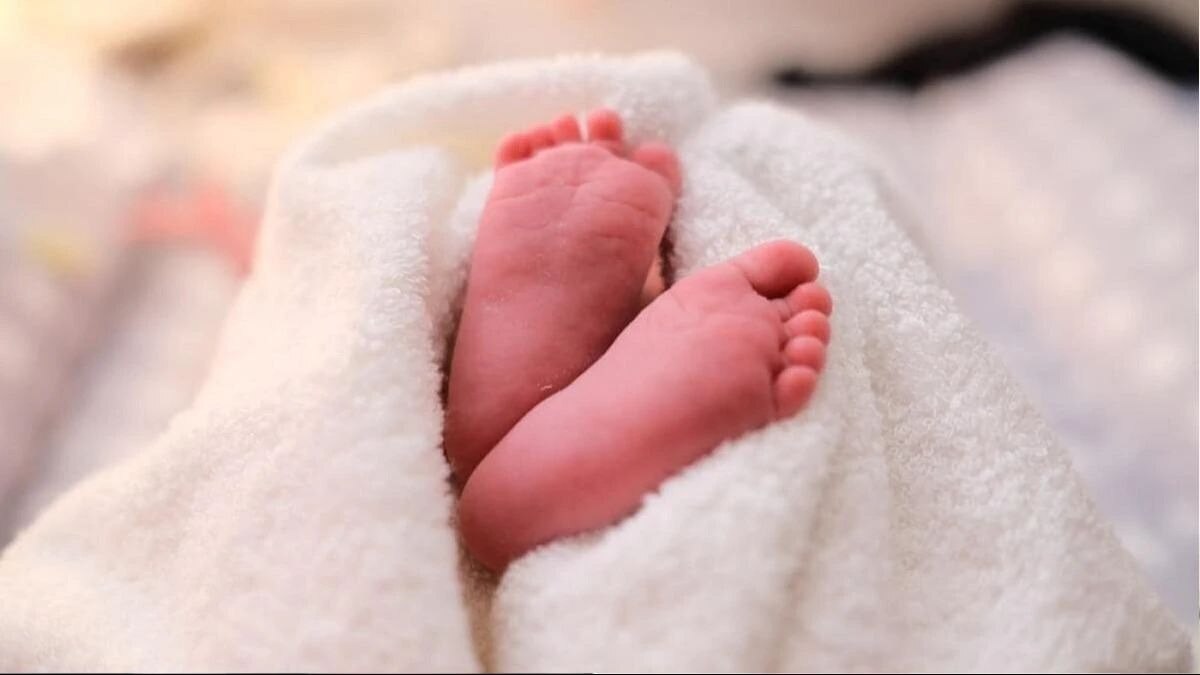In a statement that has ignited fierce debate across Nigeria, Daniel Bwala, a prominent presidential aide and spokesperson to President Bola Tinubu, declared on September 2, 2025, that Lagos, the nation’s economic powerhouse, is “no man’s land” and the “hub of Nigeria.” The remark, made during a public address in Abuja, has stirred a storm of reactions, with some praising Bwala’s assertion as a recognition of Lagos’s cosmopolitan nature, while others view it as a provocative dismissal of the city’s deep cultural and historical ties to the Yoruba people. The controversy has reignited long-standing discussions about identity, ownership, and the role of Lagos as Nigeria’s melting pot, raising questions about unity, regionalism, and the political implications of such statements in a diverse nation. This article explores the context of Bwala’s statement, the historical and cultural significance of Lagos, the public’s polarized response, and the broader implications for Nigeria’s social and political landscape, offering a comprehensive analysis of a debate that has gripped the nation.
The Statement: Lagos as “No Man’s Land”
Daniel Bwala’s assertion that Lagos is “no man’s land” and the “hub of Nigeria” came during a speech addressing economic development and national unity. Speaking to a gathering of political stakeholders and journalists in Abuja, Bwala emphasized Lagos’s role as Nigeria’s economic and cultural epicenter, arguing that its growth and prosperity belong to all Nigerians, regardless of ethnicity or region. “Lagos is not owned by any one group,” he stated. “It is no man’s land, a place where every Nigerian can come, thrive, and contribute to the nation’s progress. It is the hub of Nigeria, a city that belongs to us all.”
The phrase “no man’s land” has long been a contentious term in Nigerian discourse, particularly when applied to Lagos, a city with deep historical roots in Yoruba culture and tradition. Bwala’s use of the phrase was intended to underscore Lagos’s inclusivity and its status as a melting pot where people from all parts of Nigeria—and beyond—converge to pursue opportunities in commerce, entertainment, and innovation. However, the statement quickly sparked backlash, with critics arguing that it diminishes the city’s Yoruba heritage and the contributions of its indigenous communities.
Bwala, a lawyer and politician from Borno State, is no stranger to controversy. As a key figure in President Tinubu’s administration, he has often been tasked with articulating the government’s policies and defending its actions. His latest remarks, however, have thrust him into the center of a cultural and political firestorm, with implications for Nigeria’s delicate ethnic and regional balance.
The Context: Lagos as Nigeria’s Economic and Cultural Hub
Lagos, Nigeria’s largest city and former capital, is a global metropolis that serves as the country’s economic engine. With a population estimated at over 20 million, it is one of Africa’s most populous cities and a major hub for trade, finance, technology, and entertainment. The city’s ports handle a significant portion of Nigeria’s imports and exports, while its vibrant tech ecosystem, often dubbed “Yabacon Valley,” has produced some of Africa’s most successful startups. Lagos is also home to Nollywood, Nigeria’s thriving film industry, and a music scene that has given rise to global stars like Wizkid and Burna Boy.
Historically, Lagos has been a melting pot, attracting people from across Nigeria and West Africa. Its strategic location on the Atlantic coast made it a key trading hub long before colonial times, with the Yoruba-speaking Awori people as its earliest settlers. The city’s growth accelerated during the colonial era, when it served as the capital of Nigeria, and continued after independence, as migrants from various ethnic groups—Igbo, Hausa, Edo, and others—flocked to Lagos in search of economic opportunities. This diversity has shaped Lagos’s identity as a cosmopolitan center, but it has also led to tensions over ownership and belonging.
The phrase “no man’s land” has been used in the past to describe Lagos’s openness to all Nigerians, but it has often been met with resistance from Yoruba indigenes, who view it as a denial of their historical and cultural claims to the city. Lagos State, while predominantly Yoruba, is home to significant populations of other ethnic groups, leading to debates about land ownership, political representation, and cultural dominance. Bwala’s statement taps into this sensitive issue, reigniting a discourse that has simmered for decades.
Daniel Bwala: A Polarizing Figure in Nigerian Politics
Daniel Bwala, a legal practitioner and political commentator, has emerged as a prominent voice in President Tinubu’s administration. Born in Borno State in northern Nigeria, Bwala’s career spans law, media, and politics, with a reputation for bold and sometimes provocative statements. Before joining Tinubu’s team, he served as a spokesperson for Atiku Abubakar’s 2019 presidential campaign under the Peoples Democratic Party (PDP) before switching allegiance to the All Progressives Congress (APC) ahead of the 2023 elections. His political journey has made him a polarizing figure, with supporters praising his eloquence and critics accusing him of opportunism.
Bwala’s role as a presidential aide places him in a position to shape public discourse, but his “no man’s land” comment has put him at odds with a significant portion of Nigeria’s population, particularly Yoruba groups. Some see his statement as a strategic move to align with Tinubu’s vision of national unity, given that Tinubu, a Yoruba native of Lagos, has long championed the city’s inclusivity. Others, however, view it as a misstep that could alienate key constituencies in the southwest, a critical region for the APC’s political base.
Public Reactions: A Nation Divided
The response to Bwala’s statement has been swift and polarized, reflecting Nigeria’s complex ethnic and regional dynamics. On social media platforms, the debate has been particularly intense, with hashtags like #LagosIsNoMansLand and #YorubaHeritage trending in the days following the remark. Supporters of Bwala’s view argue that Lagos’s diversity is its greatest strength, and the “no man’s land” label reflects its role as a shared space for all Nigerians. “Lagos belongs to everyone,” one user posted. “It’s the only place in Nigeria where anyone can make it, no matter where you’re from.”
Others, however, have condemned the statement as disrespectful to the Yoruba people, who see Lagos as their ancestral homeland. “Lagos is Yoruba land, full stop,” one critic wrote. “Calling it ‘no man’s land’ erases our history and contributions.” Yoruba cultural groups, such as Afenifere and the Oodua People’s Congress (OPC), have issued statements rejecting Bwala’s claim, arguing that it undermines the city’s indigenous identity. Some have called for an apology, while others have accused Bwala of stoking ethnic tensions for political gain.
The controversy has also drawn reactions from political figures across the spectrum. Some APC leaders have defended Bwala, framing his statement as a call for unity in a divided nation. Others, particularly opposition figures from the PDP and Labour Party, have seized on the remark to criticize the Tinubu administration, accusing it of insensitivity to regional sentiments. The debate has even spilled into the diaspora, with Nigerians abroad weighing in on the cultural and political significance of Lagos.
The Historical and Cultural Significance of Lagos
To understand the intensity of the backlash, it’s crucial to examine Lagos’s historical and cultural significance. The city’s origins trace back to the Awori, a Yoruba subgroup, who established settlements in the area centuries ago. The Oba of Lagos, a traditional ruler, remains a symbol of the city’s Yoruba heritage, with the palace in Isale Eko serving as a cultural landmark. During the colonial era, Lagos became a major port and administrative center, attracting migrants from across Nigeria and West Africa, including the Igbo, Hausa, and Efik communities.
This diversity has shaped Lagos’s identity as a cosmopolitan hub, but it has also led to tensions over land, resources, and political power. The phrase “no man’s land” emerged in the post-independence era as a way to describe Lagos’s openness to all Nigerians, particularly during its time as the federal capital (until 1991, when the capital moved to Abuja). However, the term has been contentious, with Yoruba indigenes arguing that it erases their historical claims to the city. These tensions have been exacerbated by economic disparities, as Lagos’s wealth has attracted migrants while creating competition for jobs, housing, and opportunities.
Bwala’s statement taps into this complex history, raising questions about who has the right to claim Lagos and how its identity should be defined. For many Yoruba, the city is not just an economic hub but a cultural and spiritual homeland, tied to their traditions and history. For others, particularly non-indigenes who have built lives in Lagos, the city’s inclusivity is what makes it unique, a place where anyone can succeed regardless of background.
The Political Implications: Unity vs. Division
Bwala’s remark comes at a time when Nigeria is grappling with deep-seated ethnic and regional divisions. The country’s 250-plus ethnic groups, while a source of cultural richness, have often been at odds, with tensions over resource allocation, political representation, and economic opportunities. President Tinubu’s administration has made national unity a key priority, with initiatives aimed at fostering inclusivity and reducing regional disparities. Bwala’s statement, whether intentional or not, aligns with this agenda, framing Lagos as a shared resource for all Nigerians.
However, the backlash suggests that such rhetoric can backfire, particularly when it touches on sensitive cultural issues. Lagos is a stronghold of the APC, and any perception of disrespect toward Yoruba heritage could weaken the party’s support in the southwest. The controversy also risks fueling separatist sentiments, with some Yoruba groups calling for greater regional autonomy in response to perceived marginalization.
The debate has also highlighted the role of political communication in a diverse nation. Bwala’s choice of words, while intended to promote unity, was seen by many as tone-deaf, underscoring the need for leaders to navigate cultural sensitivities carefully. As Nigeria approaches the 2027 elections, the incident could have lasting implications for the APC’s political strategy, particularly in Lagos, where ethnic and regional dynamics play a significant role.
The Economic and Social Role of Lagos
Lagos’s status as Nigeria’s economic hub cannot be overstated. The city generates over 30% of Nigeria’s GDP and is home to major industries, including finance, telecommunications, and manufacturing. Its ports handle the majority of the country’s maritime trade, while its real estate market is among the most lucrative in Africa. Lagos is also a cultural powerhouse, with a thriving arts scene, world-class music festivals, and a film industry that rivals Hollywood in output.
This economic and cultural dominance has made Lagos a magnet for Nigerians from all walks of life, as well as expatriates and investors. The city’s diversity is one of its greatest assets, but it also creates challenges, from overcrowding and infrastructure strain to social tensions over resources. Bwala’s “no man’s land” comment was likely intended to celebrate this diversity, but it has instead highlighted the delicate balance between inclusivity and respect for indigenous identity.
Public Discourse and Social Media
The debate over Bwala’s statement has been amplified by social media, where Nigerians have expressed their views with passion and intensity. Platforms like X have become battlegrounds for competing narratives, with users posting memes, historical references, and impassioned arguments. Some have shared images of Lagos’s cultural landmarks, such as the Oba’s palace, to emphasize its Yoruba roots, while others have highlighted the city’s diversity, posting photos of its bustling markets and cosmopolitan neighborhoods.
The controversy has also sparked discussions about Nigeria’s broader challenges, including the need for unity in a country divided by ethnicity, religion, and politics. Some users have called for a more nuanced conversation, arguing that Lagos can be both a Yoruba homeland and a national hub. “Lagos is Yoruba land, but it’s also Nigeria’s land,” one user wrote. “We don’t have to choose one over the other.”
The Path Forward: Navigating Nigeria’s Diversity
The controversy over Bwala’s statement underscores the challenges of fostering unity in a diverse nation like Nigeria. While Lagos’s cosmopolitan nature is a source of pride, it also requires careful navigation to avoid alienating any group. For the Tinubu administration, the incident is a reminder of the importance of inclusive rhetoric that acknowledges cultural histories while promoting national cohesion.
Moving forward, leaders like Bwala may need to adopt a more measured approach, emphasizing Lagos’s role as a shared space without dismissing its indigenous heritage. Initiatives to promote dialogue between ethnic groups, invest in Lagos’s infrastructure, and ensure equitable access to opportunities could help bridge divides and reduce tensions. Additionally, the government could use this moment to address broader issues of regionalism, such as calls for state police or greater autonomy for states like Lagos.
Conclusion: A Debate That Reflects Nigeria’s Soul
Daniel Bwala’s declaration that Lagos is “no man’s land” and the “hub of Nigeria” has sparked a firestorm that goes beyond a single statement, touching on the heart of Nigeria’s identity as a diverse yet divided nation. The controversy highlights the delicate balance between celebrating Lagos’s inclusivity and honoring its Yoruba heritage, a balance that reflects broader challenges in Nigeria’s quest for unity. For Bwala and the Tinubu administration, the backlash is a reminder of the power of words in shaping public sentiment and the need for sensitivity in addressing cultural issues.
As Lagos continues to grow as Nigeria’s economic and cultural hub, the debate over its identity will likely persist, serving as a microcosm of the country’s broader struggles with ethnicity, regionalism, and national cohesion. Whether Bwala’s statement will have lasting political consequences remains to be seen, but it has undoubtedly sparked a conversation that Nigeria cannot afford to ignore—a conversation about who owns Lagos, who belongs in it, and how a nation of over 200 million people can come together to build a shared future.


